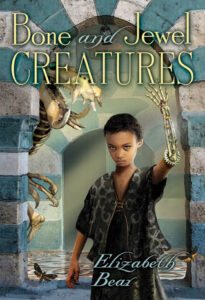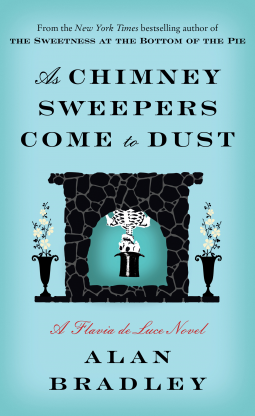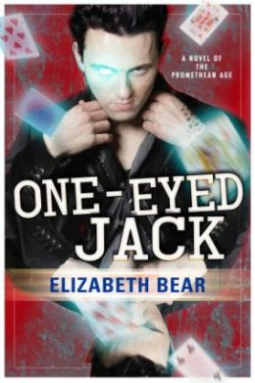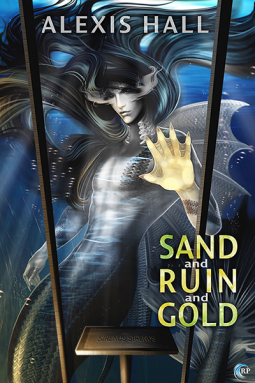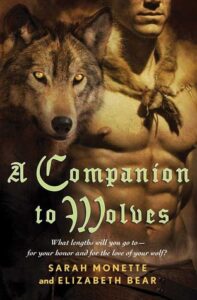 A Companion to Wolves, Sarah Monette, Elizabeth Bear
A Companion to Wolves, Sarah Monette, Elizabeth Bear
I think a lot of people have read this expecting something it really is not: comfortable LGBT fantasy romance. But while there are gay characters and themes, the main character is more straight than not, and the gay sex goes toward highlighting issues which previous work like Anne McCaffrey’s Pern books ignored. Instead of telepathic dragons and euphemistic sex scenes which turn out okay for everyone because of course the green dragons choose gay men, this explores the complications for gender identity and sexuality. To that end, there’s a lot of dubious consent here: the wolf-brothers’ relationships mirror the wolves themselves. If that’s going to bother you, definitely don’t read this (or read it with caution), because it’s quite deliberately difficult for the main character to navigate and accept. If you’re reading this because you loved The Goblin Emperor — uh, don’t, at least not just for that reason.
However, since I didn’t go into this expecting sappy gay romance, since I’ve read part of Sarah Monette’s Mélusine, I was pretty prepared for this. Having noticed all those issues with the mating sequences in Pern when I reread the first book, it was interesting to see someone deal with it, and also to place it in a context that more or less forced the authors to deal with it. Of course, this is “Iskyrne”, not the Norse world, but it’s close enough, with similar gender politics and social issues to navigate.
The whole thing is an exploration of honour and how Isolfr has to adjust his ideas of honour — and how his father also has to adjust, since that theme runs from the start of the story. It’s not always comfortable and I don’t think there’s really a happy end for Isolfr. There’s just adjustment: everything is worth it for the sake of his wolf. That’s the real emotional core of the story: Isolfr’s relationship with Viradechtis.
The fantasy world is also interesting, although it’s somewhat typical: trolls and (essentially, though not described in this way) dwarves, magical wolves, etc. The set-up for the wolfhealls is essentially the same as for the Weyrs of Pern: protecting the world. The difference is essentially a) in the amount of ice, b) wolves can’t fly, and c) it actually deals with the issues of consent it raises.
I enjoyed it, even though it wasn’t always comfortable. I don’t think the brutality of parts of it are actually intended to be some kind of indictment of the lifestyle, as some reviewers have thought. There are gay couples in the story who have a meaningful and romantic relationship, just as there are characters who don’t have sex with men outside of the breeding cycles of the wolves. It reflects less of an obsession with sexuality, showing more fluidity, which is entirely possible in the society depicted in the wolfhealls.

